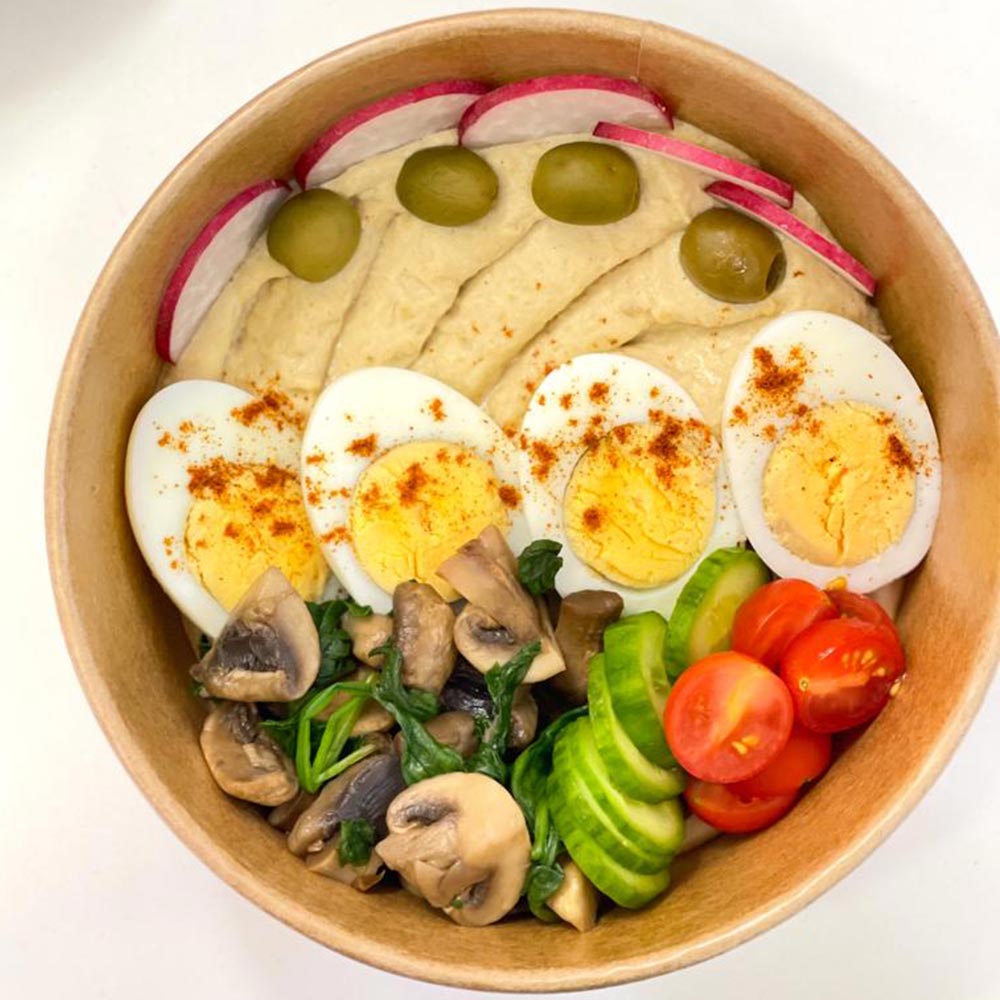Eating healthy foods has come to be a hard task in today’s
world, this is because our other activities such as exercise and stress may
hinder a good dieting program. But you can relax when it comes to energy meal plans that should help
you stay energized during the day. If properly directed you do not have to find
it hard to adhere to a food plan so that you could maintain your health, energy
levels, and reduced stress levels. In this article, I will offer you down-to-earth recommendations on how we could carry out the meal plan without hard nut
issues and give you, insights on how to embrace a healthy eating regimen.
Why Stress-Less Meal Planning Is Crucial
Flexibility management or meal planning is an essential
concept that can assist you in accomplishing the preferred goal of eating and
physical activity. Consuming the right sorts of meals means finding those that
will provide your body with the essential nutrients to perform efficiently.
Energy meal plans are most especially focused on providing you with the
appropriate proportions of carbohydrates, proteins and fats to help keep you
going throughout the day. But in many cases, the desire to adhere to a certain
diet puts an enormous amount of stress on a person, which ultimately ruins
everything.
Stress has by far been known to be interrelated with food.
Stress releases hormones known as cortisol which tends to trigger hunger that
leads to unhealthy food consumption. They can help make it easier to lose
weight because you’re not compelled to stick with a structured meal plan which
could cause feelings of deprivation or stress. The way to push off from this SN
trap is the come up with a successful meal planning technique, which is
practical and can be modified to the desired plan without putting immense
pressure on the dieter.
1. Set Realistic Goals
This means that the first procedural measure in following
your meal plan successfully without stressing yourself is to ensure that you
set yourself realistic measures to achieve. A common pitfall that people easily
let themselves into is the creation of unrealistic targets, for example,
complete elimination of whole food groups, or reduction of the daily caloric
intake. Although these goals may appear inspiring at some point they end up
becoming evasive and thus frustrating to achieve in the real world and thus
cause burnout.
They should avoid the use of large goals which may be
difficult to achieve for the incremental approach should be adopted. For
instance, when seeking to make nutritional changes in your diet don’t attempt
to change everything at once, instead, you can aim to make one or two changes a
week. This could be as minor as increasing the intake of vegetables in meals,
more emphasis on the intake of foods rich in fruits instead of foods with lots
of sugar or taking smaller portions of food. If you bundle too many goals
together you increase your chances of straying away from them and becoming
overwhelmed.
Tip: When setting your goals, try to observe the SMART
criteria, which include specificity, measurability, achievability, relevancy and
time bounds. For instance, instead of stating that you would like to eat
healthier, you could decide on the following: Experience healthier eating for
the next two weeks by ensuring that every meal you take has one serving of
vegetables.
2. Plan to Reduce Stress
Another important cause of stress when discussing meal planning is the lack of preparation. Lack of a plan makes it very easy to resort to unhealthy convenience foods and avoid eating altogether. To avoid this, dedicate some time to a week’s meal planning.
Begin the process by developing a weekly meal calendar with
the time of the day including breakfast, lunch, evening meal and in-between
snacks. It is also important to choose recipes that are easy to prepare and
nutritional worthy. To further manage your time, especially during the working
week, it is recommended to do some portion of the cooking at one time so that
preparation for the next meals can be done in a short time. Preparing will save
you time and make you not worry about having only chips and other unhealthy
products with you in a working week.
Tip: Create a list of favorite or easy recipes that you will
always be comfortable cooking. These recipes should be cycled through the week
to span a few days so that you can change your diet but not attempt new foods
every day.
3. Be Flexible and Allow for Adjustments
Although it is admirable to have a schedule in mind, one has
to learn how to be ready for a change. Everyone understands that day-to-day
life is unpredictable therefore there will always be certain shifts in the
planned timetable. It is not helpful to worry when such circumstances present
themselves, but it is helpful to know that modification is in order.
For instance, if you had prepared to teach your female
students a certain dish because of some occasion but you realize that you do
have not enough free time to cook, you should always prepare an alternative
plan, it could be a simple dish or a dish you purchase it from a local
restaurant. The best thing about stress-free meal planning is that it is
flexible, which means that no matter what happens, it is difficult to fail.
Tip: It’s important to have a couple of healthy,
shelf-stable meals or frozen dinners on hand in case you don’t have the energy
or time to cook. This will help you avoid what I refer to as ‘starvation
eating’ which includes taking unhealthy take-outs or completely skipping meals.
4. Incorporate Foods You Enjoy
I believe one of the worst things people do while trying to
follow a meal plan is to select the foods that they don’t like. Eating a
healthy diet is good but it is even better to have fun with the foods you eat.
If you’re always coercing yourself to take meals that you don’t like, then
you’re likely to end up stressed and frustrated, which is likely to make you
eat more or completely drop your diet plan.
Rather, use specified servings to concentrate on consuming
as many different foods you like as possible. Introducing new combinations into
your meals will help to make it a new experience for your palate. As I’ve
pointed out umpteen times already, eating healthily doesn’t have to be a
monotonous affair – there are tons of tasty foods out there which are still
good for you.
Tip: Create a list of healthy foods you like and try to find
how you can add them to your dishes. For instance, in case you fancy fruits,
incorporate them in your breakfast or snacks or if you fancy spices in your
foods, perhaps test out various brands of herbs with a spicy kick to them.
5. Practice Mindful Eating
Newbie dieters can benefit from this most efficient of strategies for eating the allowed portions without a hint of stress. Some of the components are; recognizing your hunger and fullness levels, taking time to eat, and chewing and enjoying what you are eating. Mindful eating helps people have a positive outlook towards taking food, as well as manage the situation where people take most foods without necessarily needing the energy that they provide.
Here’s how you begin: avoid distractions during the time you
intend to engage in eating activity. Forget about the television and the mobile
phone; it’s just you and the food in front of you. Savor food and taste buds by
assuming a moderate mouthful, chewing very carefully and seeing the flavors of
foods. Pay attention to signals your body will give when you’re full and try to
cease eating when you reach your satisfying level. If you stay aware of your
signals, you prevent yourself from eating more than you should and eat foods
that are appropriate for you on the diet plan.
Tip: It can help to try out maintaining a food diary for
what you have eaten, how often you have eaten and how you feel after eating.
This way one can see cycles and see whether changes should be made to the meal
plan or not.
6. Find Help and Assistance
It can be tough to stay committed to a meal plan when
there’s no one from your household to keep you company. It has often been said
that having somebody to turn to in need of help can work a lot of wonders. Just
like a friend or family or a support group, having someone in your corner can
help to motivate and encourage you, and even keep you on track.
If you have a problem following a meal plan correctly, it
would be wise to consult a nutritionist or a dietitian. They can meet with you
in person and give you information about healthy diets and how to make an
eating plan in your custom. Furthermore, the existence of communities or groups
on the particular subject of eating healthy is beneficial in addition to giving
company sense and motivation.
Tip: Plan on meeting with a friend or a family member
practicing healthy eating daily. Make sure you share with the other members of
the group what you have done, what problems you faced or overcame and what
achievements you have made.
7. Celebrate Your Successes
Last on the list is the need to take time to cheer your wins
no matter how little they feel to be. Sustaining meal plans is a great
accomplishment and recognizing your progress is a good way of encouraging
yourself to work even harder.
Every time you achieve something: you follow the meal plan
for a week or try a new recipe, congratulate yourself. Engaging in some form
of entertainment or buying something small for yourself but healthy. It is
always useful to keep your successes in mind to model the behavior
that has brought you this far.
Tip: It is recommended that you write down a journal or a calendar
where you’ll be able to document your daily weekly or monthly progress and
success. This way, you will look back and see how much you achieved and this
will help you carry on.
Conclusion
You can make eating according to your meal plan a very easy and
relaxing process. Therefore, it is possible to develop practical guidelines
which include establishing goals, preparing a menu, being adaptable, including
the kinds of foods you like, learning how to eat mindfully, seeking support,
and cheering yourself up if your objectives are attained.
Therefore, it is important to relax when planning meals
because meal planning is not an all-or-nothing type of thing. This way, you get
less stressed about your meals, you DO NOT feel guilty from time to time and
you can get healthier without even realizing it. It must be understood that
there are certain vital aspects in nutrition; and when all these critical
factors in the right approach are incorporated into your programme, then healthy
eating will become a welcome norm in daily life which translates into energy,
nourishment and a stress-free body.






























